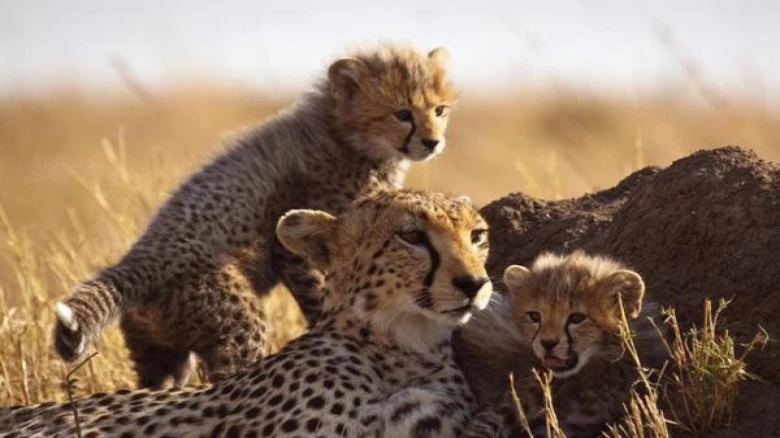The last cheetah in India died 75 years ago in 1947 in the Korea district of present-day Chhattisgarh, and the world's fastest animal was declared extinct in the country.
Digital Desk: On September 17, Prime Minister Narendra Modi will introduce five of the world's fastest animals to Madhya Pradesh's Kuno National Park, 75 years after the country's last cheetah perished in the country in 1947. Shivraj Singh Chouhan, the chief minister of Madhya Pradesh, announced the development on Tuesday.
The five cheetahs will be transported from Windhoek, Namibia, to Jaipur and then transported to Palpur in Kuno by airplane. Five helipads have been built for VIPs travelling to the event, while two helipads have been built inside the park for cheetahs.
Chief Minister Shivraj Singh Chouhan stated that the Prime Minister would be present for the relocation. The Prime Minister's Office (PMO) has not yet officially announced the development. September 17 also appears to be PM Modi's birthday.
The last cheetah in the country died in 1947 in the Korea district of modern-day Chhattisgarh, which was once part of Madhya Pradesh, and the species was declared extinct in the country.
The 'African Cheetah Introduction Project in India' was conceived in 2009, and a proposal to put the large cat in KNP by November last year was thwarted by the Covid-19 outbreak, according to officials.
Namibia and the Indian environment ministry have yet to confirm whether or not three rejected cheetahs would be sent to India. Meanwhile, a team from the South African Environment Ministry came to Kuno National Park on Tuesday to inspect the risk management plan preparations.
South African cheetahs will be sent to India at a later date because the two countries have yet to sign a memorandum of understanding (MoU).
Meanwhile, preparations for the cheetah translocation project are underway at Kuno National Park, with officials busy transferring the solitary leopard present in the cheetah cage and clearing weeds, thorny bushes, shrubs, and herbs that could cause problems for herbivores and cheetahs.
"The enclosure is ready for cheetahs. Leopard will be released soon, and the cage is currently surrounded by solar electric fencing. "The four watch towers have high-resolution cameras that will monitor cheetah movement," said divisional forest officer PK Verma.

Leave A Comment